
Top stories





Marketing & MediaWarner Bros. was “nice to have” but not at any price, says Netflix
Karabo Ledwaba 1 day

More news

Logistics & Transport
Maersk reroutes sailings around Africa amid Red Sea constraints
















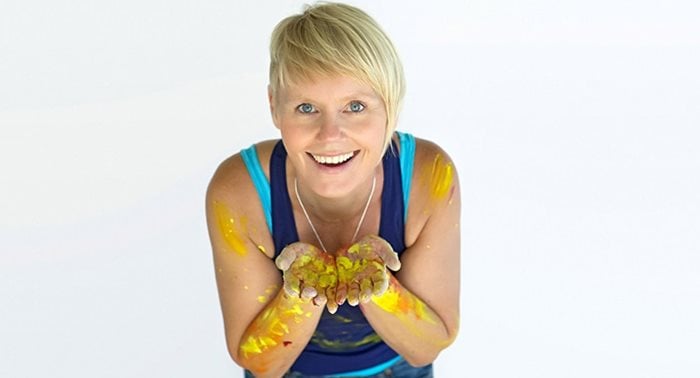
The consequences of the pandemic have impacted on emotional wellbeing and mental illness in general. As human beings we are biologically wired for connection. Being in lockdown and isolation has had a negative impact.
There is much turmoil in the world in general and this can evoke much anxiety and fear due to the high levels of uncertainty. Most of us are living in stress response a lot of the time and this can lead to all sorts of health issues if we don't have practices that help us recover and come back to centre or a calm response.
In general, I do think that women often play the role of caregiver and tend to put their families' needs and their careers first. Self-care is often an afterthought.
Many women are navigating burnout and unhelpful levels of anxiety. There is also a tendency to compare ourselves to others and have feelings of inadequacy or unhelpful beliefs of "I'm not good enough".
I offer a compassionate space where they can reconnect to their true nature - which is love and connection. It's a space that invites clarity on what truly matters most.
I offer practices that cultivate a more self-aware and self-compassionate approach.
The certified ontological coaching and leadership programme is offered through the Ontological Coaching Institute which is based in Australia and founded by Alan Sieler.
We now have a strong and active South African connection and the programme runs in SA, in Asia, the US and Europe.
I started offering retreats in 2014 and have guided many over the years! In 2018, after a training in mindful self-compassion, I decided to call the retreats #theselfcompassionbreak.
Each retreat is different - and the emphasis is always on self-compassion. I work with women and men, individually, in groups and on retreats.
I do find that more women make contact with me and sign up for the retreats. I am curious about that. I assess that there is a particular historical narrative that "men don't talk about their emotions" and "women enjoy being in community". I don't subscribe to those assessments. I continue to be open to working with all genders.
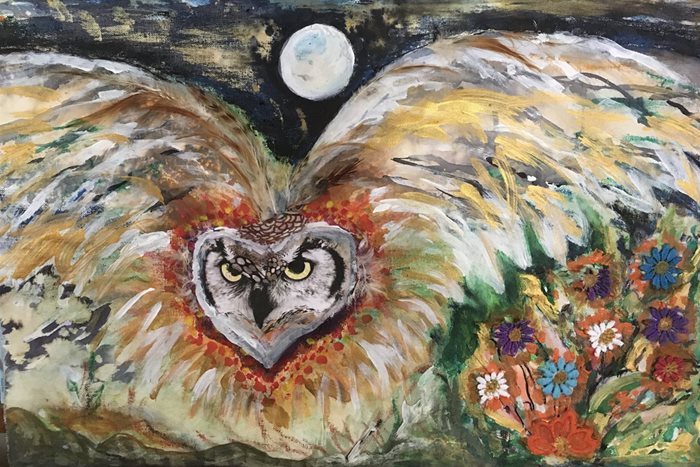
Ontological coaching is characterised by coaching to way of being. Our way of being is the underlying driver of communication and behaviour. Our perceptions and attitudes, many of which may be deep seated and out-of-awareness, exist in our way of being.
Change in these perceptions and attitudes can result in the removal of significant barriers to learning, and the spontaneous development of more effective patterns of communication and behaviour.
Effectiveness in personal and professional life, and the quality of our existence, is indelibly shaped by way of being.
Way of being is regarded as a dynamic interrelationship between three areas of human existence – language, emotions and body.
Coaching in all three areas of language, emotions and body has the potential to be transformative, as it can generate profound learning and deep constructive change.
I partner with each client to facilitate a shift in their way of being – to bring about helpful changes in the direction the client wants to go.
This ontological ‘shift’ (registered in the nervous system) allows the client to perceive the world and behave in ways that weren’t perhaps available to them before.
What distinguishes ontological coaching from other forms of coaching is that the coach and client partner to bring about beneficial shifts in these three domains. I view this partnership as an ongoing commitment, and the path I invite clients to walk with me are ones I have explored myself.
Ontological coaching is a powerful methodology for effecting change for individuals, teams and organisations.
The benefit of group coaching in workshops or retreats is that we become aware that we are not the only ones experiencing challenges. This is one of the key aspects of mindful self compassion (common humanity). This invites connection, learning and compassion.
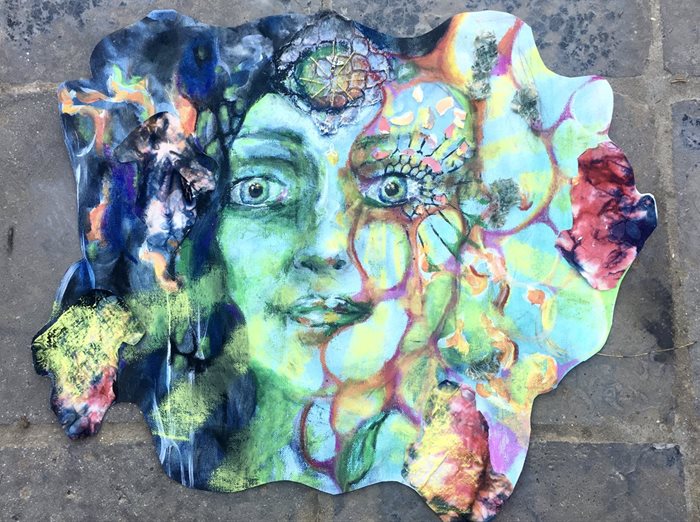
Often we don't have the words to describe what's occurring for us, and the art process (creative guiding) is a way of "getting out of the head", becoming more mindful and using colour, texture and symbols to express ourselves intuitively.
I use stories, poetry, nature and various other stimuli to inspire the guided art process. We use a wide range of materials which include watercolours, acrylics, inks, dyes, chalk pastels, clay and collage.
The emphasis is in the experience of creating, developing and reflecting – not focusing on the finished piece. There is a deepening of self-awareness in which one’s thinking does not override the process of spontaneity and creating.
It’s about an inward exploration, being in the present moment, letting go of expectations and being curious about whatever emerges.
No art experience is required. It's important to know that we don't assess the artworks.
We use this approach to transfer tools for stress management, change resilience, shifting dysfunctional team habits, sparking helpful conversations, collaboration and dealing with loss of any kind.
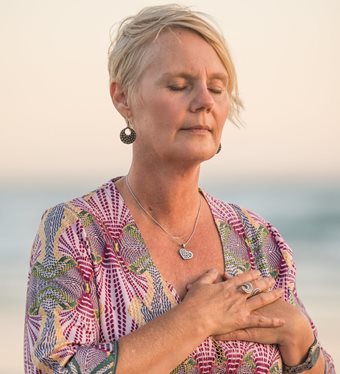
How do women benefit from your coaching? What gains can they take into their personal lives and workplaces?
I'd say the main benefit is having a partner (the coach) with which to have conversations. These could be conversations for clarity, possibility, action, reflection and learning, and relationship. It's an opportunity to become aware of your way of being - an invitation to begin to observe yourself and the world differently.
Ontological coaching facilitated a process of me becoming aware of how hard I am on myself. I realised this was not helpful - as it kept me in stress response and held me back.
Only once I had that awareness could I then ask for support and begin to shift and become more compassionate with myself. This was the gateway to more possibilities.
I assess and have had feedback that clients begin to realise that we all see the world in a different way - according to our way of being.
The range of what we think and do
is limited by what we fail to notice.- RD Laing
This is an opportunity to become curious, to listen carefully and to ask questions for clarity. Taking time to do this first can open up many possibilities in their relationships, both at work and in their personal lives.
I've had feedback that clients shift out of a mood of anxiety and become kinder to themselves which leads to more acceptance of themselves and others which then leads to more connection, more conversation, more possibility.
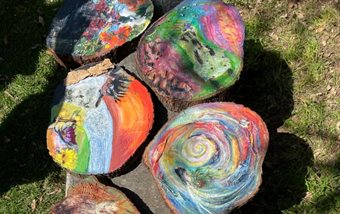
Could you speak to the process of 'retreating' and to the creation of community with other women, and how these processes facilitate the outcome of your work?
I offered my first women's-only retreat in August 2021 at Temenos in McGregor and that was an enriching experience. We connected, reflected, shared, listened, created, danced, cried and laughed. I'd like this to be an annual retreat. And we're exploring different retreat venues. Volmoed is a peaceful space surrounded by nature in the Hemel-En-Aarde Valley.
The word retreat implies 'withdraw' which in some sense is what we do. We withdraw from our regular daily activities. I call my retreat offer #theselfcompassionbreak - which is an invitation to take a break from your daily routine and cultivate me-time, to create new learning and practise self-compassion.
I always set the intention to create a safe, nurturing space of no judgement. The invitation is to give yourself permission to show up, be vulnerable, be messy, be real, be with all the emotions that arise - and to do this with kindness and compassion - and with support.
As I mentioned previously, it's a space where we connect with others and this helps us realise we are not alone - that we have so much in common.